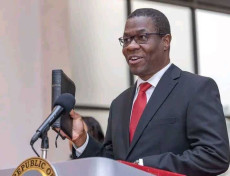- In an era where information moves faster than bullets, shutting down the internet is not a show of strength but a sign of insecurity.
- It undermines trust in institutions, weakens democracy, and endangers lives by blocking the timely flow of verified information.
Every year on September 28, the world commemorates World News Day and the International Day for Universal Access to Information; a reminder that truth, accountability, and public participation depend on free access to information.
Yet, in an age where the internet is the lifeline of modern journalism, a growing number of governments are choosing to sever that lifeline whenever power feels threatened.
The case of Tanzania during and after the October 29, 2025 General Elections lays bare this worrying trend.
As reports of unrest and alleged deaths began to surface, the government opted to throttle and eventually shut down internet access.
The blackout made it nearly impossible for journalists to verify information, communicate with sources, or publish stories in real time.
Read More
CNN journalist Larry Madowo, appealed to Tanzanian journalists to send original footage from their phones and cameras, a desperate attempt to report on what happened.
According to Access Now, there were 187 recorded internet shutdowns or throttling incidents across 35 countries in 2022.
India led globally, with 84 shutdowns, a grim reminder that even democracies are not immune to digital repression.
Governments often justify such measures in the name of national security or public order, but in reality, they cripple economies, disrupt education, and silence journalism.
Internet shutdowns violate the freedom of expression enshrined in international law and hinder the right to access information: both of which are fundamental pillars of democracy.
As the United Nations Human Rights Council (UNHRC) affirms, “the same rights that people have offline must also be protected online.”
This means freedom of speech, assembly, and access to information cannot be arbitrarily curtailed simply because they occur in the digital sphere.
Journalists have resorted to using Virtual Private Networks (VPNs) to bypass restrictions, but these are not foolproof.
VPNs drain batteries, slow devices, consume excessive data and are always prone to cyber-attacks, making them unsustainable for continuous fieldwork.
Moreover, in regions where entire networks are disabled, even VPNs cannot bridge the blackout.
The Tanzanian experience mirrors a broader continental pattern. In Ethiopia, for example, internet blackouts have been used to quell protests and suppress political dissent.
Such acts represent not just censorship but a modern form of digital authoritarianism — the deliberate use of technology to control citizens rather than empower them.
In an era where information moves faster than bullets, shutting down the internet is not a show of strength but a sign of insecurity.
It undermines trust in institutions, weakens democracy, and endangers lives by blocking the timely flow of verified information.
If governments truly believe in transparency and stability, they should protect, not police, the digital public square. Journalism thrives on access, and when that access is cut, so too is the lifeline of truth.
Stay connected with us on WhatsApp and X for instant updates and breaking news as it happens.



-1772090413-1772095461-md.jpg)
-1772094026-md.jpg)


-1772090413-1772095461-sm.jpg)
-1772094026-sm.jpg)